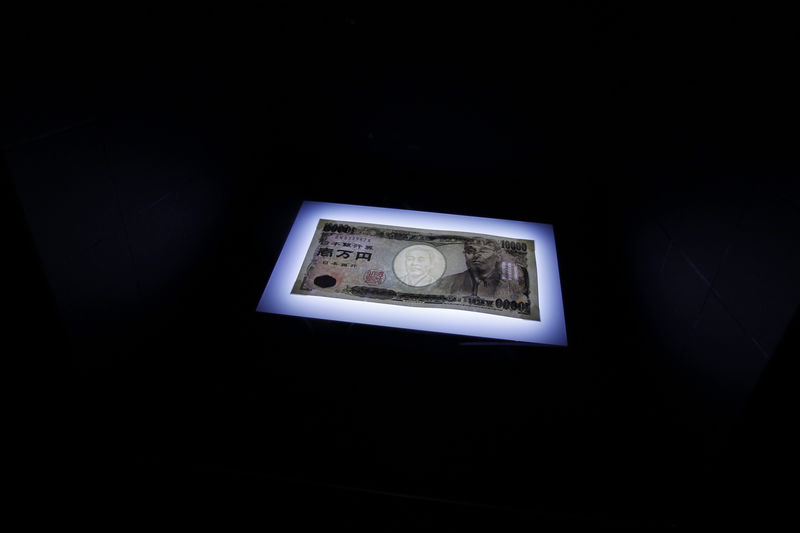Investing.com - The yen edged stronger in Asia on Friday despite disappointing data on overtime pay.
USD/JPY changed hands at 113.60, down 0.08%, while AUD/USD traded at 0.7351, down 0.10% after retail sales.
In Japan overtime pay for January fell 1.30% year-on-year with a 0.80% rise in the previous month. Later come average cash earnings seen up 0.2%.
In Australia, retail sales for January rose 0.3%, less than the 0.4% month-on-month gain expected.
"Retail sales in Australia in January were slightly weaker than expected and suggest that consumption growth may have softened at the start of the year. Nonetheless, there is little evidence that the turmoil in financial markets is prompting households to adjust their behaviour much," Capital Economics said in a note to clients
"The 0.3% m/m rise in retail sales was slightly weaker than the consensus forecast of a 0.4% m/m rise, but was in line with our own expectations. At the least it suggests that the stagnation in December was probably a one-off rather than the start of a major slowdown."
The U.S. dollar index, which measures the greenback’s strength against a trade-weighted basket of six major currencies, was down 0.60% to 97.61.
Overnight, the dollar pushed lower against the other major currencies on Thursday, after the release of rather weak U.S. economic reports and as investors began to eye Friday’s nonfarm payrolls data.
The Institute of Supply Management said its non-manufacturing purchasing manager's index fell to 53.4 last month from 53.5 in January, compared to forecasts for a reading of 53.2.
Separately, the U.S. Census Bureau said factory orders increased by 1.6%, worse than forecasts for an advance of 2.0%. Factory orders fell 2.9% in December.
Earlier Thursday, the U.S. Department of Labor said the number of individuals filing for initial jobless benefits in the week ending February 27 increased by 6,000 to 278,000 from the previous week’s total of 272,000. Analysts expected jobless claims to fall by 1,000 to 271,000 last week.
Data on Thursday showed that euro zone retail sales increased by 0.4% in January, above forecasts for a rise of 0.1%.
Year-over-year, retail sales rose 2.0% in January, beating expectations for a gain of 1.3% and after rising 2.1% in the preceding month.
But the euro remained under pressure after European Central Bank board member Benoit Coeure signaled Wednesday that the ECB will ease monetary policy this month.
Coeure said it was “vital” to stimulate economic growth and boost inflation after prices in the euro zone fell 0.2% in February.
